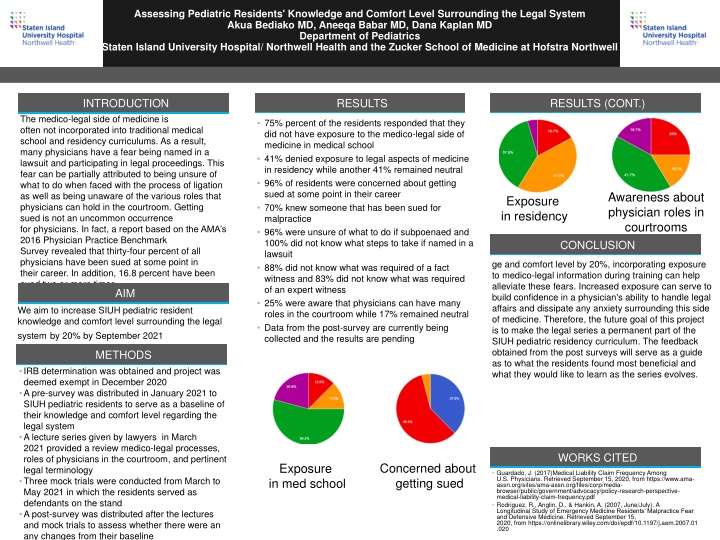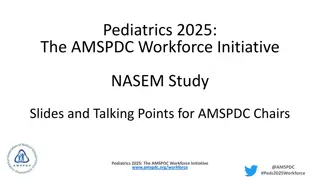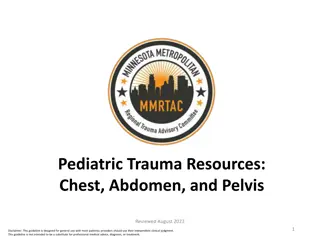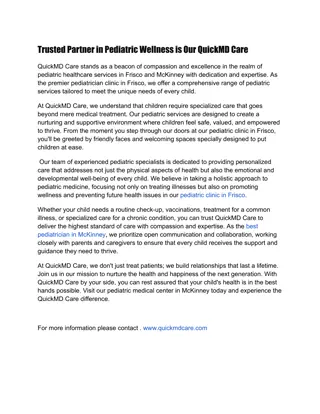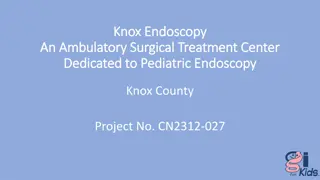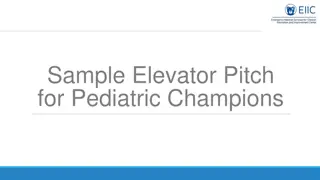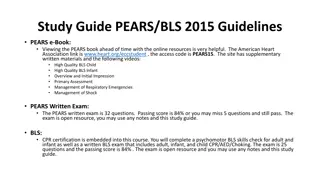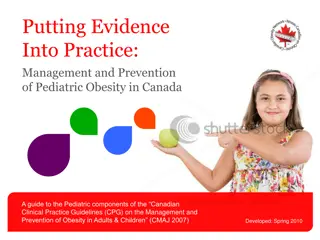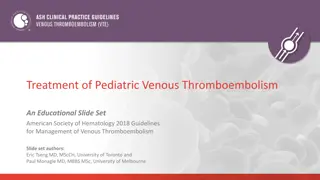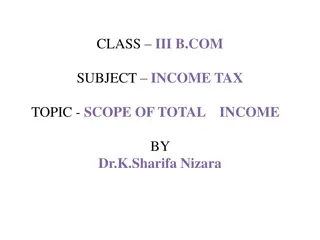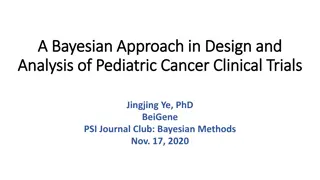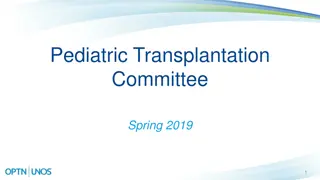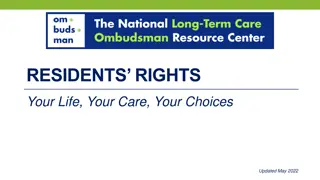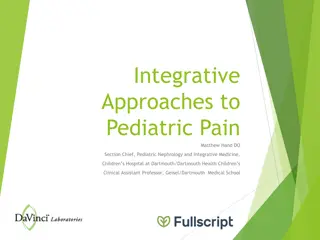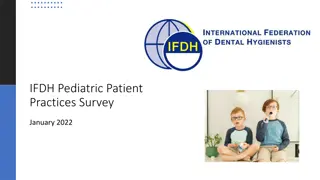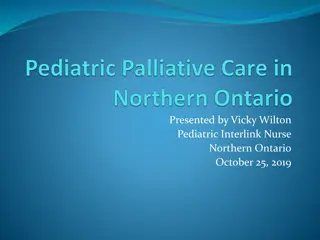Assessing Pediatric Residents' Knowledge and Comfort with the Legal System
Pediatric residents' knowledge and comfort level surrounding the legal system are assessed in a study highlighting the importance of medico-legal education to alleviate fears and build confidence. The project aims to incorporate exposure to medico-legal information into residency training to enhance residents' preparedness for legal aspects of medicine.
Download Presentation

Please find below an Image/Link to download the presentation.
The content on the website is provided AS IS for your information and personal use only. It may not be sold, licensed, or shared on other websites without obtaining consent from the author.If you encounter any issues during the download, it is possible that the publisher has removed the file from their server.
You are allowed to download the files provided on this website for personal or commercial use, subject to the condition that they are used lawfully. All files are the property of their respective owners.
The content on the website is provided AS IS for your information and personal use only. It may not be sold, licensed, or shared on other websites without obtaining consent from the author.
E N D
Presentation Transcript
Assessing Pediatric Residents' Knowledge and Comfort Level Surrounding the Legal System Akua Bediako MD, Aneeqa Babar MD, Dana Kaplan MD Department of Pediatrics Staten Island University Hospital/ Northwell Health and the Zucker School of Medicine at Hofstra Northwell RESULTS RESULTS (CONT.) INTRODUCTION The medico-legal side of medicine is often not incorporated into traditional medical school and residency curriculums. As a result, many physicians have a fear being named in a lawsuit and participating in legal proceedings. This fear can be partially attributed to being unsure of what to do when faced with the process of ligation as well as being unaware of the various roles that physicians can hold in the courtroom. Getting sued is not an uncommon occurrence for physicians. In fact, a report based on the AMA s 2016 Physician Practice Benchmark Survey revealed that thirty-four percent of all physicians have been sued at some point in their career. In addition, 16.8 percent have been sued two or more times. AIM 75% percent of the residents responded that they did not have exposure to the medico-legal side of medicine in medical school 41% denied exposure to legal aspects of medicine in residency while another 41% remained neutral 96% of residents were concerned about getting sued at some point in their career 70% knew someone that has been sued for malpractice 96% were unsure of what to do if subpoenaed and 100% did not know what steps to take if named in a lawsuit 88% did not know what was required of a fact witness and 83% did not know what was required of an expert witness 25% were aware that physicians can have many roles in the courtroom while 17% remained neutral Data from the post-survey are currently being collected and the results are pending Awareness about physician roles in courtrooms Exposure in residency CONCLUSION ge and comfort level by 20%, incorporating exposure to medico-legal information during training can help alleviate these fears. Increased exposure can serve to build confidence in a physician's ability to handle legal affairs and dissipate any anxiety surrounding this side of medicine. Therefore, the future goal of this project is to make the legal series a permanent part of the SIUH pediatric residency curriculum. The feedback obtained from the post surveys will serve as a guide as to what the residents found most beneficial and what they would like to learn as the series evolves. We aim to increase SIUH pediatric resident knowledge and comfort level surrounding the legal systemby 20% by September 2021 METHODS IRB determination was obtained and project was deemed exempt in December 2020 A pre-survey was distributed in January 2021 to SIUH pediatric residents to serve as a baseline of their knowledge and comfort level regarding the legal system A lecture series given by lawyers in March 2021 provided a review medico-legal processes, roles of physicians in the courtroom, and pertinent legal terminology Three mock trials were conducted from March to May 2021 in which the residents served as defendants on the stand A post-survey was distributed after the lectures and mock trials to assess whether there were an any changes from their baseline WORKS CITED Concerned about getting sued Exposure in med school Guardado, J. (2017)Medical Liability Claim Frequency Among U.S. Physicians. Retrieved September 15, 2020, from https://www.ama- assn.org/sites/ama-assn.org/files/corp/media- browser/public/government/advocacy/policy-research-perspective- medical-liability-claim-frequency.pdf Rodriguez, R., Anglin, D., & Hankin, A. (2007, June/July). A Longitudinal Study of Emergency Medicine Residents Malpractice Fear and Defensive Medicine. Retrieved September 15, 2020, from https://onlinelibrary.wiley.com/doi/epdf/10.1197/j.aem.2007.01 .020
INTRODUCTION The medico-legal side of medicine is often not incorporated into traditional medical school and residency curriculums. As a result, many physicians have a fear being named in a lawsuit and participating in legal proceedings. This fear can be partially attributed to being unsure of what to do when faced with the process of ligation as well as being unaware of the various roles that physicians can hold in the courtroom. Getting sued is not an uncommon occurrence for physicians. In fact, a report based on the AMA s 2016 Physician Practice Benchmark Survey revealed that thirty-four percent of all physicians have been sued at some point in their career. In addition, 16.8 percent have been sued two or more times.
OBJECTIVE We aim to increase SIUH pediatric resident knowledge and comfort level surrounding the legal system by 20% by September 2021
METHODS IRB determination was obtained and project was deemed exempt in December 2020 A pre-survey was distributed in January 2021 to SIUH pediatric residents to serve as a baseline of their knowledge and comfort level regarding the legal system A lecture series given by lawyers in March 2021 provided a review medico-legal processes, roles of physicians in the courtroom, and pertinent legal terminology Three mock trials were conducted from March to May 2021 in which the residents served as defendants on the stand A post-survey was distributed after the lectures and mock trials to assess whether there were an any changes from their baseline
RESULTS 75% percent of the residents responded that they did not have exposure to the medico-legal side of medicine in medical school 41% denied exposure to legal aspects of medicine in residency while another 41% remained neutral 96% of residents were concerned about getting sued at some point in their career 70% knew someone that has been sued for malpractice 96% were unsure of what to do if subpoenaed and 100% did not know what steps to take if named in a lawsuit 88% did not know what was required of a fact witness and 83% did not know what was required of an expert witness 25% were aware that physicians can have many roles in the courtroom while 17% remained neutral Data from the post-survey are currently being collected and the results are pending Awareness about physician roles in courtrooms Concerned about getting sued Exposure in med school Exposure in residency
CONCLUSION The legal system has been perceived as unknown territory for many physicians. The results of the pre- survey confirmed that resident physicians fear being sued and are unaware of how to navigate through legal proceedings. While the results of the post-survey will determine if the lecture series and mock trials increased SIUH pediatric residents' knowledge and comfort level by 20%, incorporating exposure to medico-legal information during training can help alleviate these fears. Increased exposure can serve to build confidence in a physician's ability to handle legal affairs and dissipate any anxiety surrounding this side of medicine. Therefore, the future goal of this project is to make the legal series a permanent part of the SIUH pediatric residency curriculum. The feedback obtained from the post surveys will serve as a guide as to what the residents found most beneficial and what they would like to learn as the series evolves.
WORKS CITED Guardado, J. (2017)Medical Liability Claim FrequencyAmong U.S. Physicians. Retrieved September 15, 2020, from https://www.ama-assn.org/sites/ama- assn.org/files/corp/media-browser/public/government/advocacy/policy-research- perspective-medical-liability-claim-frequency.pdf Rodriguez, R., Anglin, D., & Hankin, A. (2007, June/July). ALongitudinal Study of Emergency Medicine Residents Malpractice Fear and Defensive Medicine. Retrieved September 15, 2020, from https://onlinelibrary.wiley.com/doi/epdf/10.1197/j.aem.2007.01.020
